| By: Paul S. Cilwa | Page Views: 3804 | ||
| If everyone is a victim, there must be an ultimate perpetrator. But perhaps there's an alternative perspective to help end the cycle of victimhood. | |||
Doesn't matter what happened. Whose fault is it?
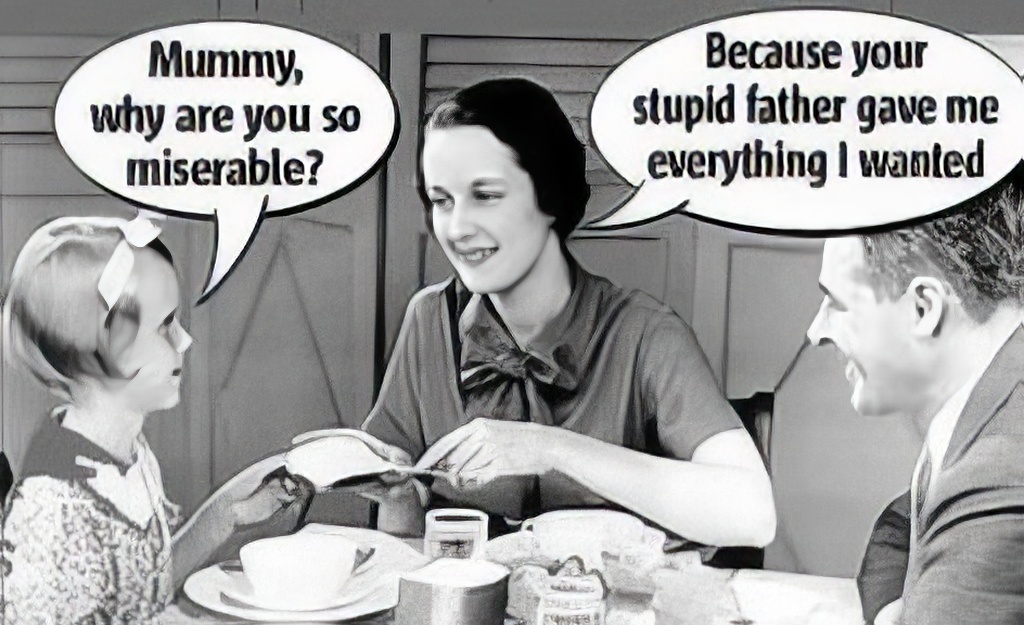
We live in an age of universal victimhood. Nothing is my fault, I'm told. I am the result of imperfect genes, bad parenting, economic deprivation, greedy corporations, inconsiderate partners, selfish children, dishonest government, and an uncaring universe. And, not only is it not my fault, it is somebody else's fault…and they're gonna pay! —As soon as the case comes to trial, and I'm awarded that huge settlement, except my lawyer will get most of that and then, when I've spent all I did get, I'll be poor again and it will be my lawyer's fault, the bastard!.
Blame Through History
Throughout history, people have had different notions as to who was to blame.
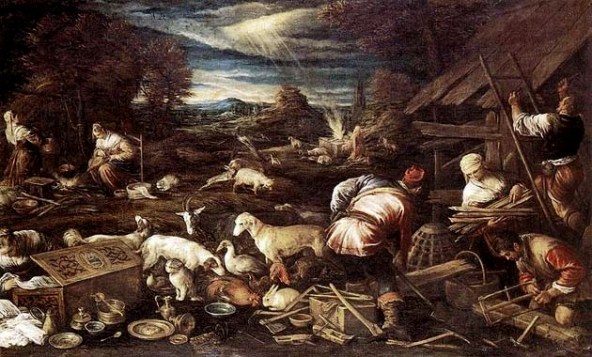
Most tribal cultures see the world as a place controlled by living, supernatural beings, such as the wind, the rain, the sun and the earth. They see these beings as greater than they, more powerful, and thus the ultimate bearers of responsibility for everything. If it doesn't rain and the crops fail, if it rains too much and they are washed away, this is clearly the fault of the rain god. Tribal peoples have an odd relationship with their gods. They don't truly worship them, but they do pray to them and offer sacrifice in an attempt to placate the unfeeling deities and attain the favors of good weather, bountiful crops, and long lives.

Of course, we know too much to hold such nave views. We know
how the weather works; we can predict it with surprising accuracy; we track
storms and droughts and our global economy ensures that civilized countries do
not starve even if the local crops do fail. So, we don't fear the weather
and have no need of making gods of its components. We say, weather just
happens. We also say,
Of course your crop failed. The weather service
predicted a dry year, this year, and you insisted on planting rice.
We don't see that this farmer is a victim of anything but his or her own stupidity,
because we believe he or she had access to the same information available to us all.
Similarly, there are unemployed people crying out to their employed friends and family,
in times of economic boom, It's not my fault! I just can't get a job, no matter how hard I try!
The majority of these people dropped out of high school, in spite of the
insistence of nearly everyone with a job that a high school diploma
is a requirement for getting a job. In the last couple of decades, it has
become clearer that even a high school diploma isn't enough, either—a
college degree is needed. But I couldn't go to college—my parents couldn't
afford it.
And so, blame is shifted to the parent, the victim has an excuse
to be a victim…and still can't get a job.
Yet, if this blame is valid, then why do some kids manage to put themselves through college and get good jobs? Even kids who don't belong to a privileged class?
Could it be that it is victimhood that is wrong?
The problem with victimhood is this: It doesn't work. Victims can't even be happy; it's not in their nature. Victims also can't improve their situation, because it isn't their fault. Someone or something else must change in order to improve the victim's situation (sometimes thousands of things!) and, since we cannot change the behavior of others, nothing improves. Victimhood is a dead end.
It also may be, that a belief in victimhood is as naïve as those tribal folk who see themselves as victims of the weather. It may be easy for those who are more aware to see that we—none of us—are victims of anyone but ourselves. Becoming that aware just takes a little practice in seeing things from the non-victim (that is, self-responsible) viewpoint.
Victim of Drugs?
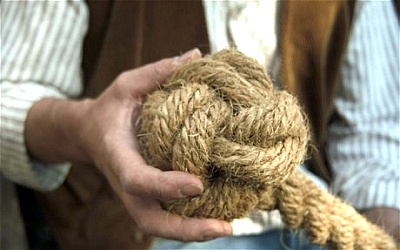
Here's a case from my files. A young man moved to California to live with a friend he knew from his childhood home in the Washington, DC, suburbs. After several months, the friend, who was a regular drug user, began to become increasingly violent and the young man began to fear for his safety. He decided to move out, but delayed to do so. After several weeks, the friend did become violent, and the young man found himself on the street, unable to return to his room, with no money, and no place to stay.
Was he a victim of the drug user? If one buys into the idea of victimhood, it certainly sounds so, doesn't it?
Yet, the young man knew his friend was doing drugs before he moved in. He knew people using that particular drug (cocaine) often become violent. He knew his friend had a history of violence. Even so, he moved in, and earned money for several months—yet, in spite of knowing he would have to move out eventually, made no effort to save for that inevitable day that he must leave. The young man is not stupid—in fact, he is quite bright. So, why did he make what seems, in retrospect, to be disastrously poor decisions? Could it have been to maintain his self-image of being a victim?
The fact is, we make our own realities. If we see ourselves as rich and successful, we will just naturally do things that create and support that reality. If we see ourselves as poor victims, then, that's what we create for ourselves.

Have you ever noticed how much easier it is to solve other people's problems than your own? That's why! We don't have the mask of their delusions to get in the way of our seeing what they can't—or, don't—allow themselves to.
And yet, surely, sometimes we can just be the victim of bad luck…right? Or, do we make our own luck?
Just Bad Luck?
Consider another, more subtle, case: A woman who worked at
one of those discount department stores as a cashier, was given a raise, then
told it had been a mistake
—and it was cancelled. A few weeks later,
checks disappeared from her cash drawer and she was fired. Obviously, someone
wanted her fired and saw to it that it happened. What rotten luck!!
At the same time, she had been living with a man for over a year. This relationship had not held any mark of permanence: for example, after a year of living together, he still hadn't changed his answering machine message to acknowledge her being there. When she lost her job, he became emotionally abusive. And, like the young man in California, she found herself without money, and without a place to live.
What awful luck!
one wants to say. Poor thing.
And, yet…

Before the affair with the raise ever happened, the woman had professed a desire to leave that job and town. She wasn't satisfied with the relationship at home, either, and knew it was time to leave. Yet, she didn't…and she didn't save for the planned move, either. Most people would have taken the hint from the withdrawn raise, that this wasn't an employer to be trusted, and that they were perhaps hinting for her to quit. When she didn't, they raised the stakes. This woman had ignored her inner voice telling her it was time to move on; it was inevitable, and not bad luck at all, that circumstances arose that forced her to. She wasn't ready, because she had made no attempt to get ready—even though her inner voice had given her plenty of warning.
Now, the plot thickens. The main reason this woman had no
money was because her daughter, who had been in and out of jail, got pregnant
and needed constant loans
to get by. The daughter had no job, and had made
no attempt to get one, explaining that there are no jobs where I
live.
Yet, she had made no attempt to move to a place where there were jobs.
So, now, the woman is not only a victim of her job, and her
boyfriend, but also of her own daughter…who, if you listen to her, is a victim
of the law, the court system, and the man who got her pregnant
(it was consensual and she choose not to use any protection), and the fact that
the area in which she lived, but had no ties, was economically depressed.
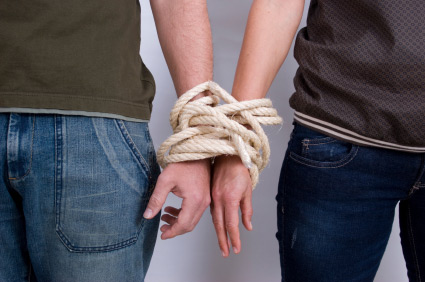
When a victim finds a rescuer, watch out! This is a perfect co-dependent relationship. It will last until the victim, by draining all money, emotion, or health from the rescuer, has turned the rescuer into another victim. "I was only trying to help!" the rescuer cries…and the pattern continues.
It continues because rescuers, too, buy into the theory of victimhood.
The Innermost Self
And what about the woman's inner voice
? She had
been telling people for months that she knew it's time to leave,
so the
inner voice was not just a figment of later rationalization.
The inner voice is real. We all have one. (For those of you
who do not believe this, it's the voice saying to you, right now, There's
no such thing as an inner voice!
) Most of us accept that our inner voices are
the expressions of our Innermost Selves.
What is the Innermost Self
? Well, it depends on whom you
ask. Some might go right to the core of All That Is and claim it is God. Others may settle on a
guardian angel or a favorite saint or a beloved mother or grandmother.
Still others may see it as merely
the
expression of their consciousness, originating at a level beneath the traumas and
issues that lead us to make bad decisions. Whatever the source, the Innermost
Self is most people's most reliable guide to productive behavior.
The problem is, the Innermost Self isn't the only aspect
of ourselves that speaks in an inner voice
. We also have shallower or animal
selves, with loud voices of their own. So, how can we tell the difference? How
can we avoid becoming victims of the wrong inner voice?
It is actually very simple. The animal self speaks from a place of fear. The Innermost Self speaks from a place of joy.

The animal self uses fear to guide and relief to reward. If
you are being chased by a tiger, or trying to crawl out of the rubble of an
earthquake, the animal self makes a good guide. However, it can never
grant happiness: it only deals with survival. If you know a person who says,
I know how to survive. I've never learned to live,
you know someone
who is guided by his or her animal self.

The Innermost Self uses joy to guide and happiness to reward.
When we find ourselves unhappy, this is our natural response to not following
the guidance of our higher selves. That's why New Age folks have the
catch-phrase, follow your bliss.
When a thought occurs to you that fills
you with joy, that's your Innermost Self suggesting a direction…one you would
be well-advised to heed.
When one sees oneself as a victim, happiness seems very far away. Fear is in charge: mainly, fear of being victimized again. The best a victim can hope for is the rare relief of avoiding victimhood.
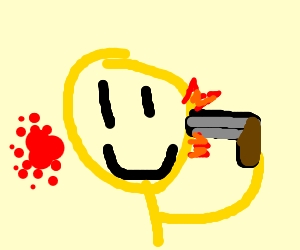
The solution sounds deceptively simple: release your victimhood. Let it go. You do this by realizing that you have meticulously planned every nuance of your life, so far…for your benefit, to get you to this moment…the moment in which you realize victimhood doesn't work for you, and you choose to give it up.
It's the moment you accept that you are a victim of yourself, only.
Easy For Me To Say…?
Okay, so supposed you've read the preceding essay and, in general, agree with it. Sure, most of your friends really do get themselves into the fixes they find themselves in. But always? That's a little harder to swallow. How about babies? How about people with genetic diseases? That certainly isn't their fault! So, really, there are some victims, right?
Well, it depends on one's perspective; and in the next several essays we'll attempt
to show how this is so. However, for the time being, let's say,
Sure…people with genetic diseases are victims.
Let's say this
simply to see what happens when we do. Where can we go with this information?
An episode of the '90s TV series Ally McBeal portrayed a young boy dying of some incurable disease. He'd gotten it because of a genetic predisposition, and had decided to sue God.
So, okay, sue God for your genes. Will that fix them? Provide the money to care for you?
No.
How about suing your parents? After all, the genes came from them! But if they didn't know of their own genetic flaws, no court will find them guilty; so all you will have accomplished is alienating them.
The fact is, no matter whether the faulty genes are God's fault or the mailman's, they're your genes now. You're going to have to make the most of them. In other words, even if you are a victim, you'll have to forget about it if you want to get on with your life and grab what happiness you can.



